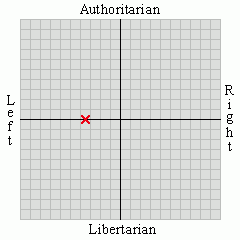
Tonight I finished reading
The Book of Ebenezer Le Page. Until I read a review by the
Ochlophobist, I had never heard of the book. The
Ochlophobist, in turn, had heard of the work from Douglas Ian
Dalrymple. Their mutual recommendation made this, for me at least,
The Book Which Must Be Read.
I will not attempt a review, as the Ochlophobist has already done such an admirable job with that (you will need to scroll back to January 15th for the particular post). This little-known work is the only novel of G. B. Edwards, who died in 1976. In my view, he joins the company of Harper Lee, Guiseppe di Lampedusa, John Kennedy Toole, and yes, Margaret Mitchell; all writers who show that if you do something well enough, it only has to be done once. The book is simply one of the most satisfying reads I have had in a long, long time. These characters will stay with me--Ebenezer himself, the tormented Raymond Martel, the fussing sisters La Hetty and La Prissy, good old Jim Mahy, the unattainable Liza Queripel, harbinger of doom Cousin Mary Ann and finally, Neville Falla, who epitomized the author's hope for mankind. As Och noted, the book does not lend itself to short, pithy quotes, for the entire work is a gem. I do like this one, found in the last pages: "Is all one generation can do to set the stage for the comic, sad story of the next?"
This is the story of a man firmly rooted in his place, the island of Guernsey. He came of age before the First World War, lived through the German occupation during the Second, and continued on into old age-but never senility, and living long enough to witness the Disneyfication of his beloved island. But through it all, he knew, and lived who he was--Ebenezer Le Page of Les Moulins.
The rootedness of Le Page to his place and his world is at the heart of my fascination with his story. Ebenezer stands as a rebuke to the utter rootlessness of our age. And yet, while we recognize its value, and lament its loss, we are sometimes happier when it is others who tackle becoming "rooted."
My wife and I have lived for 21 years in a now-101 year-old house. We are but its 3rd owners. Her parents home, purchased in 1950, lies across the garden patch. Her brother owns it now, and her niece lives there, while the other brother lives next door. The sister, before her death, lived at the end of the block. Various aunts and cousins have and do live in other houses scattered around the neighborhood, a near family compound. In fact, my wife has never lived outside this 2-block neighborhood. Except for 3 years in Austin, I have lived my entire life in the southwestern quadrant of our county. My son, my nephew and I are the 5th and 6th-generation owners of our farm, which we simply refer to as "the old place." My folks purchased the new farm, closer by, in 1962. Even the building where our little Orthodox mission meets is in the old schoolhouse associated with my mother's family. Sometimes, after liturgy, I step across the road to the cemetery, and visit with my parents, where 6 generations of my family lie buried. My wife's family and my maternal family had been scratching around on this little patch of earth since the mid 1840s. And the fact that we are 3rd cousins attests to the fact that there is a good bit of overlap in our family stories. All this is to say that the two of us are not exactly poster children for the mobile society.
Certainly our situation is hardly typical in today's society. I am thankful to be able to live out my life in a particular place that has meaning to me. I am sympathetic to the story of Ebenezer Le Page, and yet...I also realize how much a product of the modern world I am. I could have never been content with staying-put as he did. My yearning to travel is a reflection of this, I suppose. Also my familial connectedness is not so much with the close-at-hand ancestral ties, but rather with my dad's family, the "other" which was lost. He was not from around here, as they say. During the Great Depression, he found his way here, settled in, and took charge. Without him, no "old farm" would have been saved, or anything else for that matter. So, I appreciate the
rootedness I do have. But reading
The Book of Ebenezer Le Page, reminds me how far I actually am from that life. At best, I may just be trying to have the best of both worlds, which is seldom convincing. It certainly lacks the honesty of a life lived like Ebenezer Le Page.










.jpg)
.jpg)
.jpg)

